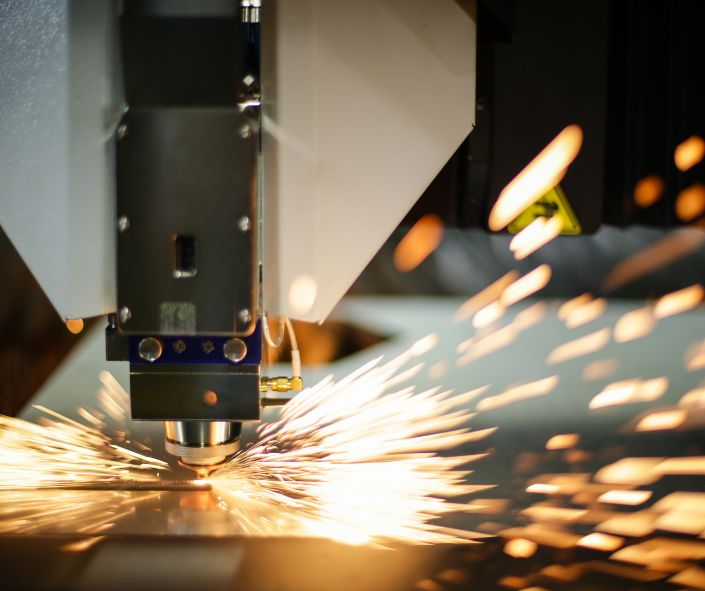Computer Numerical Control machining (CNC) has revolutionized manufacturing and engineering in the last couple of decades. In integrating digital technology and traditional manufacturing processes, CNC machining has emerged as a leading method of creating high-precision pieces and components across various industries. This article delves into the mechanics, benefits, and diverse applications of CNC machine machining, and highlights the impact it has had on the modern engineering.

The Mechanics of CNC Machining
CNC machining is a subtractive method of manufacturing in which the material is removed from a solid block, or workpiece, to create the shape you want. The process is controlled by pre-programmed software that controls the motion of the machine. The code generated by CNC machines is based on the type of machine used as well as the complexity of the item. However, the fundamental idea remains the same. High-speed cutters precisely cut away material to form the finished product.
The precision of CNC machine is among its greatest advantages. Digitalization allows for consistent and accurate production. This minimizes human error, while also ensuring the same quality across batches. This level of precision is vital in industries such as aerospace and medical devices.
The Role of Digitalised Computers in CNC Machine Operations
CNC Machining is a very efficient and precise process that is based on digital technology. CNC machines are controlled by specialized software that automates the entire manufacturing process. The software converts computer-aided design (CAD) designs into a sequence of precise directions, which the CNC machine follows to create the part. These instructions define everything starting from the cut’s depth and the angle, to the speed of the machine.
In facilities for industrial use of a larger size, computers can be integrated directly into CNC machines. This allows for seamless communication and control. This integration enables continuous monitoring in real time, which guarantees maximum performance while also reducing the amount of downtime. Automation of CNC machines also allows for continuous operation, greatly increasing efficiency and reducing the time it takes to complete.
The Benefits of CNC Machining
CNC machining has numerous advantages over traditional manufacturing techniques. The ability to produce complex, intricate parts with high accuracy is one of the major benefits. CNC machining’s accuracy eliminates the need to make manual adjustments or the rework. It also reduces waste and improves efficiency. In addition, CNC machines can operate constantly, which makes them ideal for production runs with high volumes.
CNC milling has another benefit it’s the flexibility. Through the modification of the program it is possible to create many different components. This versatility allows CNC machine-making suitable for prototyping as well as mass production, allowing manufacturers to quickly respond to the changing demands of markets.
Automating CNC machining improves the safety of work. Injuries and accidents are less likely in situations where manual intervention isn’t required. CNC-machined equipment is additionally more reliable and work better, increasing customer satisfaction.
CNC Machining Services Benefits for Industries
In a range of industries, CNC machining has proven to be highly efficient highly precise and versatile. CNC machines in the aerospace industry produce parts that need to meet the highest standards of safety and performance. Medical device manufacturers rely on CNC machine machining to make of intricate surgical instruments and implants, in which precision is essential.
The automotive industry uses CNC milling to make components for engines, transmission parts, and intricate exterior and interior features. The electronics industry also benefits from CNC machining, which can produce tiny, intricate parts for consumer electronics and communications devices. Jewelry and the art industry as well utilize CNC technology to make custom pieces as well as intricate designs.
The future of CNC Machining
CNC machining capabilities are expected to expand as technology advances. Innovations such as multi-axis machining as well as additive manufacturing integration and advanced material will push the limits of possibilities that are possible using CNC technology. Machine learning and artificial intelligence will likely increase the accuracy and efficiency of CNC manufacturing.
In the end, CNC machining has profoundly affected modern manufacturing and engineering and manufacturing, delivering unparalleled precision, efficiency, and flexibility. Its capability to make complex parts with high precision is a crucial tool for all industries. As technology improves, CNC machining will undoubtedly continue to play an important part in determining the future of manufacturing.